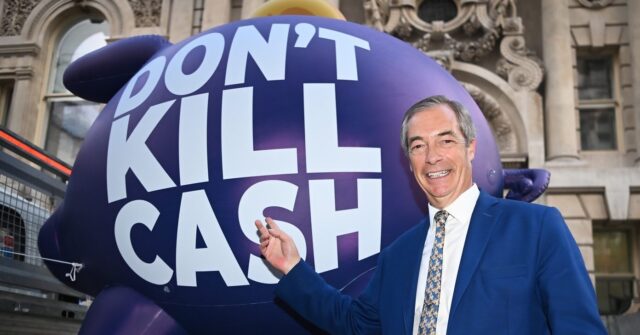Economic changes and the movement to push back against total digital surveillance of daily life by using cash rather than cards to buy things appears to be having an impact, with cash transactions rising for the second year in a row, industry says.
Debanking activist and Brexit leader Nigel Farage has long beat the ‘cash is king’ drum on the importance of not allowing digital transactions to totally dominate everyday life as a protection against banks being able to arbitrarily turn off the ability of individuals to make payments if, say, they have the wrong political views. The view that cash still has utility appears to be permeating, as the British Retail Consortium states cash use has just risen for the second year running, starting a slow fightback against decades of decline againgt cards.
Near a fifth of all transactions in the United Kingdom last year were with coins and notes, 19.9 per cent, up from 18.8 per cent in 2022. Card remains dominant, making up 75 per cent of transactions, with cash having fallen hard from as many as half of all transactions as recently as 2013.

 www.breitbart.com
www.breitbart.com
Debanking activist and Brexit leader Nigel Farage has long beat the ‘cash is king’ drum on the importance of not allowing digital transactions to totally dominate everyday life as a protection against banks being able to arbitrarily turn off the ability of individuals to make payments if, say, they have the wrong political views. The view that cash still has utility appears to be permeating, as the British Retail Consortium states cash use has just risen for the second year running, starting a slow fightback against decades of decline againgt cards.
Near a fifth of all transactions in the United Kingdom last year were with coins and notes, 19.9 per cent, up from 18.8 per cent in 2022. Card remains dominant, making up 75 per cent of transactions, with cash having fallen hard from as many as half of all transactions as recently as 2013.

Cash Comeback: Number of Physical Payments in UK on the Rise
Economic changes and the movement against total digital surveillance having impact, with cash transactions rising for the second year.


